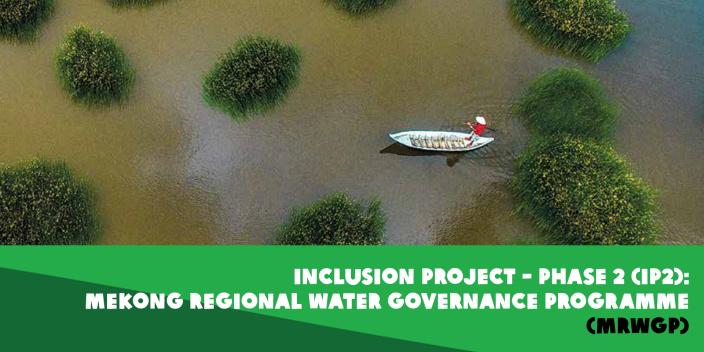The Inclusion Project - Phase 2 works with vulnerable communities and the social sector to ensure continued access to essential river resources for their livelihoods, health and well-being, and is a continuation of Phase 1, which ran from 2014 to 2020. The project is built upon the achievements, recommendations and priorities of the project partners, and continues to support social actors in each country and at the regional level to engage in dialogue with and influence decision- and policy-making bodies.
Objectives
- Promote the leadership roles of women and representatives of marginalised social groups in influencing national and regional state and non-state actors in water resource governance (WRG) and energy policy and planning processes.
- Enhance the engagement of riverine communities and social actors in influencing national and regional water resource governance and renewable energy (RE) policy, and promote the interests and rights of vulnerable social groups.
- Increase compliance of target government and private sector actors at the national and regional levels with international standards and best practice for: the protection of human rights; social and ecological sustainability; gender equality and inclusion; and engagement with and inclusion of the perspectives of the social sector in hydropower and RE policies and plans.
Outcomes
- More women, including young indigenous women, are actively engaging in water resource governance and renewable energy related public events, platforms and fora at local and national levels.
- Increased use of gender and social analysis among social organizations, the private sector and policy makers in water resource governance and renewable energy development.
- Communities and social organizations are more informed and the VRN strengthened to influence national and regional water resource governance and renewable energy policy and planning processes.
- Communities and social organizations more effectively engaging with and influencing institutions, government bodies and the private sector on national and regional water resource governance and renewable energy policies and plans.
- Increased understanding and awareness of the general public, energy consumers, social organizations, policy makers and financiers of the impact and sustainability issues related to hydropower energy production and the availability of alternative, less harmful energy options.
- More diverse actors are aware of and promote sustainable renewable energy options advocated by social organizations and other organizations.
The project targets
Affected communities (with a focus on vulnerable groups: women, indigenous people, people with disabilities); hydropower companies and RE companies; the media and the general public.
Location
DakLak, Soc Trang, and Can Tho provinces; then national level.
Who we work with
The Centre for Sustainable Development of Water Resources and Adaptation to Climate Change (CEWAREC)
The Vietnam Rivers Network (VRN)

